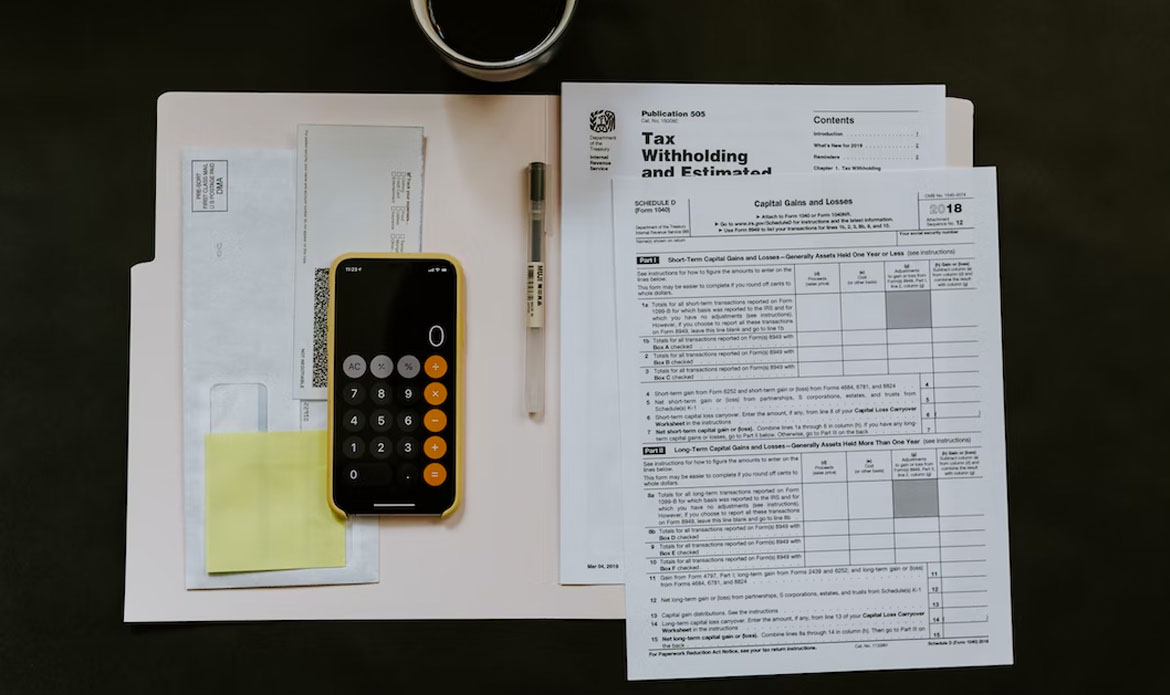In a pattern that has become all too common in recent decades, the newly enacted Inflation Reduction Act (IRA) added yet another layer of tax complexity to an already complex and burdensome federal tax code. While the Inflation Reduction Act increased the Internal Revenue Service (IRS) budget by roughly $80 billion over 10 years, it also created two new corporate taxes and either expanded or launched 26 tax credit programs. These provisions will increase the administrative burden on the IRS and the tax compliance burden on taxpayers—costs that divert precious time and resources away from the private economy.
The federal tax code imposes many costs on the U.S. economy. The most direct costs, of course, are the resources taken out of the nation’s economy. Federal taxes consume nearly 20 percent of U.S. gross domestic product (GDP). Our tax system is heavily reliant on individual and corporate income taxes which economists at the Organisation for Economic Co-operation and Development have determined are the most harmful for economic growth.
A less direct cost is the precious time taken out of our lives to comply with a Byzantine tax code that requires billions of hours completing mountains of IRS paperwork and tax returns. In 2021, the IRS collected more than $4.1 trillion in total taxes from all sources. To do so required Americans to file 261 million tax returns in 2021. Some 75 percent of these, or 197 million, were income tax returns (both individual and corporate), while another 33.8 million were employment tax returns.
According to the latest estimates from the White House Office of Information and Regulatory Affairs (OIRA), Americans will spend more than 6.5 billion hours complying with IRS tax filing and reporting requirements in 2022. This is equal to 3.1 million full-time workers doing nothing but tax return paperwork—roughly equal to the combined populations of Philadelphia and San Antonio—and 39 times the workforce at the IRS.
The accompanying table lists the 25 most burdensome tax regulations. It shows that more than half of the 6.5 billion hours Americans spend on tax compliance is on complying with income tax returns. Taxpayers spend 2 billion hours complying with individual income returns (including small business returns) and over 1.1 billion hours complying with corporate income tax returns, plus 1.4 billion hours complying with business deductions and quarterly tax returns. The remaining 2 billion burden hours are attributable to complying with hundreds of other tax forms and schedules, everything from wage and tax statements for employees to estate tax returns.
Tax Complexity Will Cost the U.S. Economy Over $313 Billion This Year
Besides the checks that taxpayers send to the IRS every April 15th, complying with the tax code imposes a real cost on the economy. Every hour spent complying with tax forms and returns is an hour that parents cannot spend with their families or business owners cannot spend growing their firm. Economists call these opportunity costs.
Using hourly wage and benefit estimates for tax preparers and certified public accountants from the Bureau of Labor Statistics (BLS), we can estimate what tax compliance time costs taxpayers. For individual income tax provisions, we used BLS estimates for the average wage and benefits for (13-2082) Tax Preparers as of May 2021. The average wages for Tax Preparers are $24.56 to which we added the average benefits for private sector workers of $11.42.
For the remaining business-related returns and more complex provisions—such as returns for estates and trusts, or depreciation schedules—we used an hourly compensation cost of $53.08 for (13-2011) Accountants and Auditors. The average hourly wage for these workers is $41.66, to which we added the average benefits for private sector workers of $11.42.
Put in dollar terms, the 6.5 billion hours needed to comply with the tax code conservatively computes to $313 billion each year in lost productivity. This is equal to 1.4 percent of U.S. GDP and is 23 times larger than the IRS’s annual budget.
The burden costs to individual taxpayers (including small businesses) are nearly $74 billion annually, about 24 percent of the overall cost of tax compliance. The burden on corporate entities of complying with just their income tax returns is more than $60 billion. However, businesses bear additional costs, totaling the vast majority of the remaining $179 billion in costs, complying with the hundreds of remaining tax forms and regulations in the code.
Indeed, one of the most costly requirements for business taxpayers is calculating the depreciation and amortization of their capital assets, such as machinery, computers, and buildings. These forms alone cost businesses $24 billion each year to comply with. To put this in perspective, the most sophisticated semiconductor manufacturing machines on the market today cost $150 million each. The $24 billion in burden costs of depreciation and amortization schedules could pay for 160 of these machines. Allowing firms to expense the cost of their capital investments in the year they are purchased would eliminate these burden costs.
The income tax returns for estates and trusts impose a burden cost of $17.7 billion per year. If we include the numerous other forms required for gifts and generation-skipping returns, the total cost of estate planning rises to roughly $18 billion annually. To put this in context, the Office of Management and Budget (OMB) estimates estate and gift tax revenues will total $25 billion this year, which means the tax costs taxpayers nearly as much to comply with as it raises in revenues.
| IRS Tax Form(s) or Regulation | Total Annual Burden Hours | Total Annual Burden Cost |
|---|---|---|
| U.S. Individual Income Tax Return | 2,048,000,000 | $73,687,040,000 |
| U.S. Business Income Tax Return | 1,138,000,000 | $60,405,040,000 |
| Proceeds From Broker and Barter Exchange Transactions | 674,360,608 | $35,795,061,073 |
| Employer’s Quarterly Federal Tax Return | 580,656,074 | $30,821,224,408 |
| Depreciation and Amortization (Including Information on Listed Property) | 448,368,447 | $23,799,397,167 |
| Deduction for Qualified Business Income (Form 8995 and Form 8995-A) | 336,107,360 | $17,840,578,669 |
| U.S. Income Tax Return for Estates and Trusts | 333,541,340 | $17,704,374,327 |
| Wage and Tax Statements W-2/W-3 series | 126,988,903 | $6,740,570,971 |
| TITLE: Employer’s Annual Federal Unemployment (FUTA) | 105,271,229 | $5,587,796,835 |
| U.S. Tax-Exempt Income Tax Return | 58,220,000 | $3,090,317,600 |
| Declaration and Signature for Electronic and Magnetic Media Filing | 53,783,747 | $2,854,841,291 |
| IRA Contribution Information | 48,731,780 | $2,586,682,882 |
| Form 1099-R – Distributions From Pensions, Annuities, Retirement or Profit-Sharing Plans, IRAs, Insurance Contracts, etc. | 46,628,604 | $2,475,046,300 |
| Returns regarding payments of interest | 46,403,150 | $2,463,079,202 |
| Form 1099-DIV–Dividends and Distributions | 32,119,195 | $1,704,886,871 |
| Form 1099 MISC – Miscellaneous Income | 30,828,818 | $1,636,393,659 |
| W-8 BEN, W-8BEN-E, W-8EIC, W-8EXP, W-8IMY | 30,561,468 | $1,622,202,721 |
| Heavy Highway Vehicle Use Tax Return | 27,120,040 | $1,439,531,723 |
| Certain Government Payments | 24,709,380 | $1,311,573,890 |
| Information Reporting by Applicable Large Employers on Health Insurance Coverage Offered Under Employer-Sponsored Plans | 22,600,002 | $1,199,608,106 |
| Form 1098 Mortgage Interest Statement | 20,131,656 | $1,068,588,300 |
| Preparer e-file Hardship Waiver Request and Explanation for Not Filing Electronically | 18,270,900 | $969,819,372 |
| Employment Tax Adjustments and Rules Relating to Additional Medicare Tax | 16,900,000 | $897,052,000 |
| Sales of Business Property | 16,614,000 | $881,871,120 |
| Employer/Payer Appointment of Agent (Form 2678) | 13,731,200 | $728,852,096 |
| All other IRS forms and regulations | 259,255,039 | $13,761,257,470 |
| Totals | 6,557,902,940 | $313,072,688,055 |




